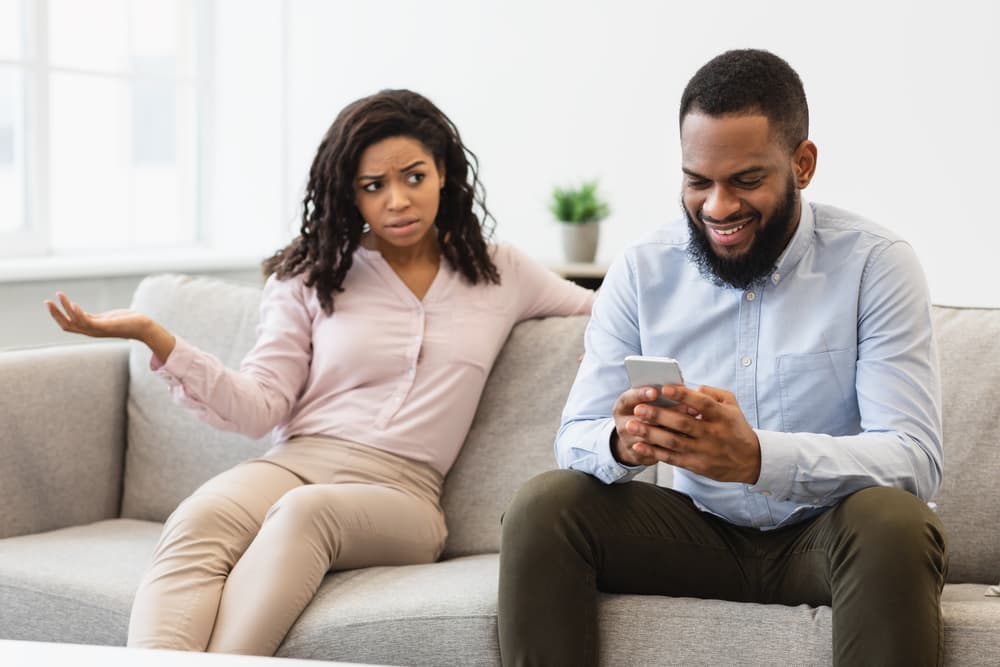In today’s hyper-connected world, social media plays an enormous role in how we communicate, share, and build relationships. With platforms like Facebook, Instagram, TikTok, Snapchat, and Twitter becoming extensions of our daily lives, it’s no surprise that they affect our real-life connections in both positive and negative ways. While these platforms can foster connection, expression, and even romance, they can also lead to misunderstandings, insecurity, and emotional distance.
In this article, we’ll dive deep into the impact of social media on real-life relationships, examining its benefits, potential drawbacks, and offering strategies for maintaining healthy, authentic connections in a digital age.
Table of Contents
- Introduction
- The Positive Side of Social Media in Relationships
- How Social Media Can Harm Real-Life Relationships
- The Role of Comparison and Envy
- Trust Issues and Online Behavior
- Social Media and Romantic Relationships
- Friendships and Digital Dependency
- Family Dynamics in the Age of Social Media
- Digital Detox: Reclaiming Real-Life Bonds
- Balancing Online and Offline Connections
- Final Thoughts
- FAQs
1. Introduction
Social media has revolutionized the way people connect across the globe. You can maintain friendships, start romantic relationships, or keep up with family through a few taps on a screen. But has this convenience come at the cost of deeper, more meaningful real-world relationships?
2. The Positive Side of Social Media in Relationships
Social media isn’t inherently bad for relationships. In fact, many users report benefits such as:
✅ Staying Connected
Platforms allow people to maintain ties with family and friends across distances.
✅ Finding Support Groups
People struggling with mental health, parenting, chronic illness, or loss often find emotional support in online communities.
✅ Celebrating Life Moments
Birthdays, achievements, and milestones can be shared with a large network, creating a sense of shared joy.
✅ Reconnecting With Old Friends
It offers an easy way to rekindle past relationships and stay in touch with former classmates or coworkers.
3. How Social Media Can Harm Real-Life Relationships
Despite its conveniences, social media can cause emotional and psychological issues that affect real-life bonds:
❌ Emotional Detachment
Too much screen time can reduce face-to-face interactions, making in-person communication awkward or superficial.
❌ Miscommunication
Without vocal tone or body language, messages are often misunderstood or taken out of context.
❌ Validation Addiction
Seeking likes, comments, and shares can lead people to prioritize online approval over genuine connection.
4. The Role of Comparison and Envy
Social media often serves as a highlight reel. People post their best moments, filtered photos, and polished lifestyles, which may not reflect reality. This often leads to:
- Unrealistic Expectations: Constant exposure to curated perfection can make users feel their own lives or relationships are inadequate.
- Relationship Jealousy: Seeing a partner like or comment on someone else’s post may spark insecurity or resentment.
- Friendship Envy: Watching others hang out without you can make you feel excluded or less valued.
5. Trust Issues and Online Behavior
One of the most frequent complaints among couples today involves social media behavior.
Common Issues Include:
- Liking or commenting on inappropriate posts
- Secret conversations or DM-ing exes
- Hiding activity or having secret accounts
These behaviors can spark suspicion, insecurity, and major trust breakdowns in relationships.
6. Social Media and Romantic Relationships
💔 Breakups and Social Media
Many people experience anxiety over what to do with shared photos or whether to stay connected with an ex. Social media can prolong heartbreak if not handled maturely.
❤️ Finding Love Online
Apps like Tinder, Bumble, and Hinge have led to millions of successful relationships. But they also contribute to a “shopping” mentality in dating, making it easier to treat people as disposable.
7. Friendships and Digital Dependency
Friendships are also affected in many ways:
- Superficial Connections: Liking a post isn’t the same as showing up in person when a friend is in need.
- Pressure to Keep Up: Friends may feel hurt if their post wasn’t liked or commented on.
- FOMO (Fear of Missing Out): Seeing friends together when you weren’t invited can lead to hurt feelings and anxiety.
8. Family Dynamics in the Age of Social Media
Social media affects families too:
- Generational Gaps: Older family members may struggle to connect with younger ones who spend most of their time online.
- Parental Oversharing: “Sharenting” (parents oversharing their kids’ lives online) can embarrass or violate children’s privacy.
- Digital Distractions: Dinner tables and family time are often interrupted by scrolling, notifications, and selfies.
9. Digital Detox: Reclaiming Real-Life Bonds
Sometimes the best thing you can do for your relationships is to take a break from social media. Benefits of a digital detox include:
- Improved Communication
- Increased Presence in the Moment
- Better Sleep and Reduced Anxiety
- Stronger Emotional Bonds
Set screen-free times, use apps to monitor usage, and re-prioritize real-world interactions.
10. Balancing Online and Offline Connections
Here’s how to keep social media from damaging your real-life relationships:
🔹 Set Boundaries
Limit when and where you use social media, especially during meals or date nights.
🔹 Communicate Openly
Discuss your online habits with your partner or friends and agree on respectful behavior.
🔹 Follow With Intention
Curate your feed to include people who uplift you rather than trigger comparison or negativity.
🔹 Spend Time IRL
Nothing beats a phone call, a coffee date, or a walk in the park with someone you care about.
11. Final Thoughts
Social media is a powerful tool—when used with awareness and moderation. It can strengthen bonds, create new ones, and maintain long-distance connections. But it can also damage trust, increase feelings of loneliness, and reduce the quality of our face-to-face interactions.
The key is not to disconnect from social media entirely but to use it wisely. Prioritize meaningful engagement, communicate clearly, and never forget the importance of being present in the moment.
12. FAQs
1. Can social media improve my relationship?
Yes, it can improve communication, help maintain long-distance relationships, and offer ways to share your life. But it should complement, not replace, real-life connection.
2. Why does social media cause jealousy in relationships?
Social media shows curated highlights and interactions that can be misinterpreted. If there’s a lack of communication, it can lead to insecurity and jealousy.
3. How can I avoid comparing my life to others on social media?
Remind yourself that social media often shows only the highlights. Practice gratitude and limit your exposure to accounts that trigger envy or self-doubt.
4. Should I follow my partner on all platforms?
That depends on your comfort level and relationship dynamic. Transparency is key, but each couple should discuss and set their own boundaries.
5. Can social media use cause breakups?
Yes, if misused. Issues like secret messaging, over-sharing, or inappropriate interactions can lead to trust issues and conflict.
6. What is a social media boundary?
A rule or agreement between people about how to behave online—like not posting private moments, or not following exes.
7. What’s a digital detox?
Taking a break from social media or screens to recharge mentally, emotionally, and socially.
8. How do I talk to my partner about their social media habits?
Choose a calm time, express your feelings using “I” statements, and focus on building understanding—not blame.
9. Why do people feel more lonely despite having many online friends?
Because quantity doesn’t equal quality. Real emotional connection requires vulnerability and face-to-face presence.
10. Is social media ruining communication skills?
In some cases, yes. Heavy reliance on texting or emojis can reduce the depth of conversations and lead to miscommunication in real life.







